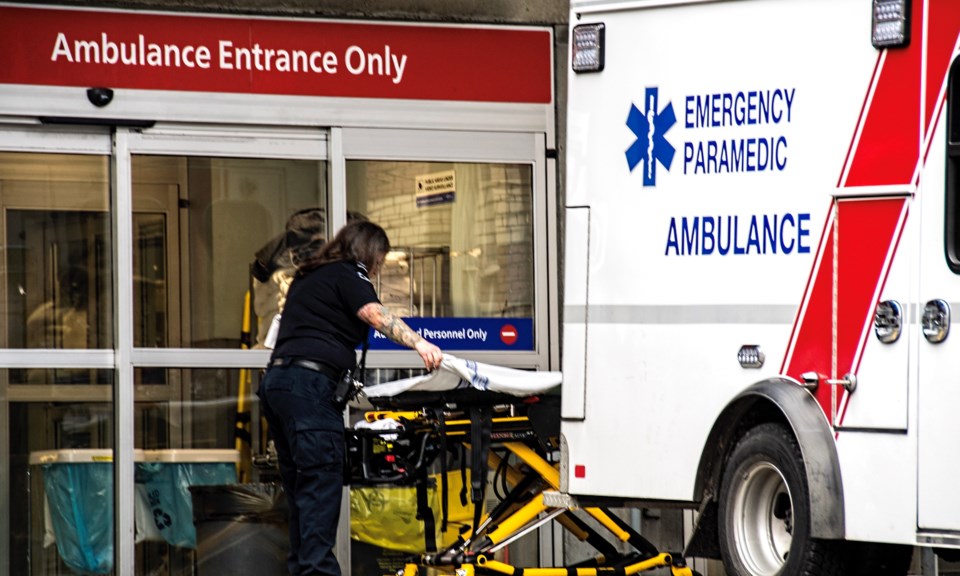The number of known COVID-19 patients in B.C. hospitals slid in the third consecutive data update, to 803 – the lowest total since Jan. 14, one month ago.
That Jan.14 count was the first one after the province changed the way it counts COVID-19 patients in hospitals to include those who contracted the disease in hospital, and who were primarily in hospital for another reason.
Serious hospitalizations – those where the patient is in an intensive care unit (ICU) – fell by 17 in the past three days, to 119, which is the lowest count since Jan. 20.
Another 17 COVID-19 deaths took place in the past three days, although the government did not say how many of the deaths were people who were primarily in hospital for other serious reasons. The new deaths raise the province's pandemic death toll to 2,864 individuals. Provincial Health Officer Dr. Bonnie Henry said recently that about 40 per cent of these deaths are at seniors' homes.
Daily case counts have declined significantly, but that is partly because health officials have advised those who are vaccinated, and who have mild symptoms to stay home and not get tested. Today's count of 667 new infections in the past day is also what the province called "provisional," because of planned system-wide down-time. Some data on the province's COVID-19 dashboard is also different from the official data that was emailed out at 3:38 p.m.
Given Henry's comments about the number of extremely serious infections in seniors' homes, it is good news that the number of outbreaks at health-care facilities or seniors' homes is falling, and stands at 39.
There were no new outbreaks in those facilities, while outbreaks have been newly declared over at:
• Geroge Derby Centre in Burnaby;
• Westview Place in Penticton;
• Hamlets at Penticton;
• Cottonwoods Care Centre in Kelowna;
• McKinney Place in Oliver;
• Gillis House in Merritt;
• Village by the Station in Penticton; and
• Spring Valley Care Centre in Kelowna.
Provincial data show 4,506,205 eligible B.C. residents older than five years have had at least one dose of vaccine, while 4,249,831 are considered fully vaccinated with two doses.
There were 57,104 people given booster, or third, doses of vaccine in the past three days, for a total of 2,443,314.
Exactly how many people live in B.C. is a matter of debate. The most updated BC Stats data, from mid-2021, . Statistics Canada data released last week relayed that , B.C.'s population had increased 7.6 per cent between 2016 and 2021, and that the new total number of residents is 5,000,879.
If Statistics Canada's census data is used, Glacier Media's calculation is that slightly more than 90.1 per cent of B.C.'s total population has had at least one dose of vaccine, and nearly 85 per cent of the province's total population has had two doses. Nearly 48.9 per cent have had their booster doses.
The difference between vaccinated people getting COVID-19, and unvaccinated people getting the disease, is not nearly as stark in the current Omicron wave as it was during the Delta wave. Unvaccinated people are however still significantly more likely to contract COVID-19 than unvaccinated counterparts, and to land in hospital with the disease.
People who are not fully vaccinated with two doses represent slightly more than 15 per cent of B.C.'s total population.
Between Feb. 4 and Feb. 10, people not fully vaccinated accounted for 23.8 per cent of cases, according to new government data. Between Jan. 28 and Feb. 10, those individuals accounted for 31.2 per cent of hospitalizations. •



